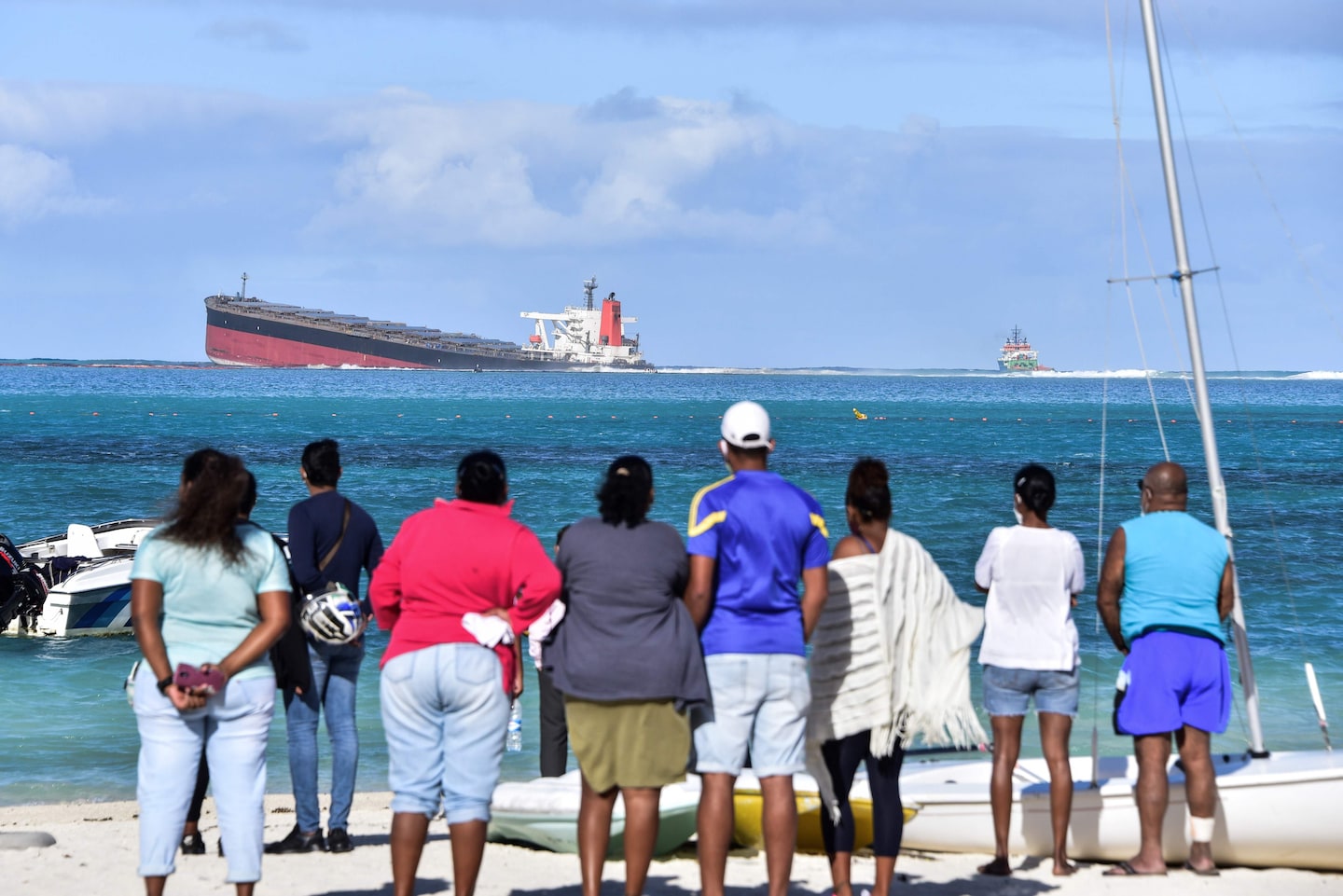‘I am so angry’: Cargo ship leaks tons of fuel into protected coral reef and wetlands

“I am so angry,” said Sunil Dowarkasing, a former member of parliament who has devoted himself to environmental protection. “This area is special — it has a specific brain coral which can live over 100 years. It has a thriving mangrove forest, and endangered chameleons. Coral had just started regenerating after 15 years of our efforts.”
Mauritius’s environment ministry released a statement on Friday warning the public from approaching the site and said it was urgently exploring options to prevent further spillage from the Panamanian-flagged MV Wakashio, which was being operated by a Japanese company and was en route from China to Brazil. The small island country relies heavily on tourism, and damage to its ecosystems could have long-term economic impact.
“We are in an environmental crisis situation,” the environment minister, Kavy Ramano, said in a separate statement. The government has appealed to the United Nations for assistance.
Dowarkasing, who spoke by phone on a beach from where he could see the ship, said dozens of volunteers were making a floating cordon of sugar cane straw and deploying it to prevent more oil from reaching the fragile reef and shore.
“I blame the government for not doing anything for 12 days, and sitting idle,” he said. “They neglected the possibility of a massive oil spill.”
The government is now racing against time, as the ship comes nearer to breaking apart, which would expand the spill and make the debris harder to clear. Dowarkasing said it appeared the government had sent coast guard boats to attempt pumping fuel out of the ship, but the ministry’s statement did not mention those efforts.
The grounding of the ship happened on the island’s southeastern shore, off an area called Pointe d’Esny, a renowned brackish wetland that contains plant and insect species found only in Mauritius. Blue Bay Marine Park, the country’s most famous snorkeling spot, is just one mile away.
“Thousands of species around the pristine lagoons of Blue Bay, Pointe d’Esny and Mahebourg are at risk of drowning in a sea of pollution, with dire consequences for Mauritius’s economy, food security and health,” said Happy Khambule, Greenpeace Africa Climate and Energy campaign manager. “Once again we see the risks in oil: aggravating the climate crisis, as well as devastating oceans and biodiversity and threatening local livelihoods around some of Africa’s most precious lagoons.”






